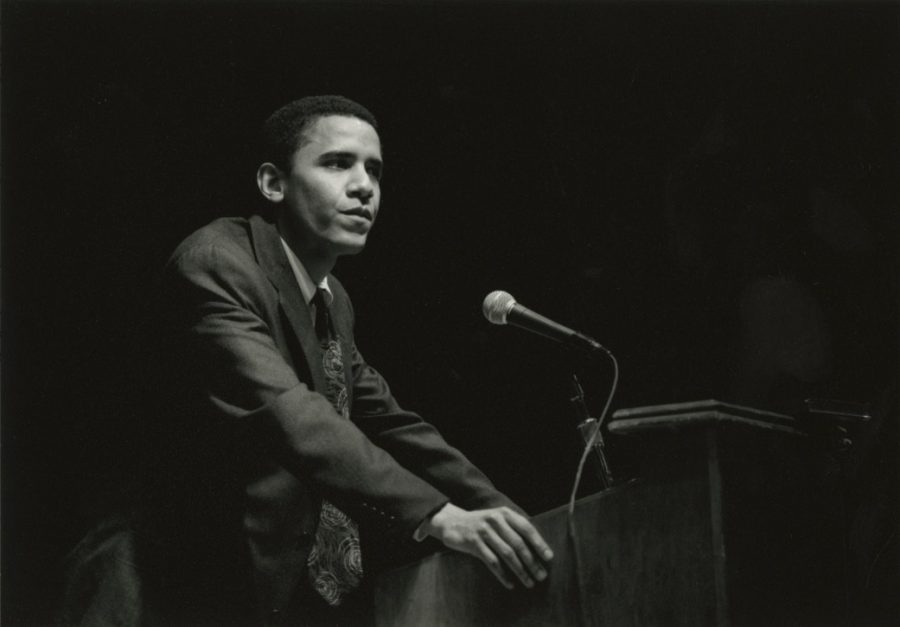The Dial Blast from the Past
Credit: Hackley Archives
Then-third-year law student Barack Obama was the speaker for Hackley’s 1991 Forbes Lecture.
November 21, 2016
In the aftermath of the election, The Dial reviewed the archives and was most surprised to learn that a young Harvard Law School student was Hackley’s Forbes Lecturer in March 1991. As the first African-American President of the Harvard Law Review, he addressed the Hackley community on social change and idealism. The Dial reprints an excerpt from the article covering his visit to Hackley. We thank President Barack Obama for his leadership and service to the country over the past eight years.
Advice For the World’s Cure: Barack Obama urges dedicated idealism
By Alysha Yagoda ‘92
Perhaps because the times are confusing and the future is unforeseeable, the students of the Upper School listened closely to Barack Obama. Mr. Obama, the fourth speaker in the Forbes Lecture Series, is a third-year student at Harvard Law School, and is the first African-American president of the prestigious Harvard Law Review. Mr. Obama grew up in Chicago, and after completing undergraduate school, returned to take up what he called “organizational” work, which entailed working with the poor and attempting to create more low-income housing. After discovering that having knowledge of America’s legal system would be an asset in this work, he matriculated at Harvard. Drawing from his experiences as an organizer and as a student at Harvard, Mr. Obama suggested to his audience a plan to follow in the forthcoming years for facing the economic and social problems challenging the country. He said the nineties generation should foster idealism, but should at the same time remember to bring responsibility to their fine aspirations, to back up words with deeds, to substitute “style” for “substance.” To help his listeners understand the need for a new commitment to, and a new direction for, social change, Mr. Obama began his speech with a history of social movement in the sixties. He explained that the goals of that generation were focused upon eliminating the social, political, and economic problems of America and the world (i.e. poverty, prejudice). He then explained that there were some successes, such as the Head Start program and the Peace Corps. He made the point, however, that the flower children did not realize the difficulty of eradicating society’s ills. They expected the change to a better world to happen overnight. Mr. Obama felt that this mentality might have been the reason that the idealism and affirmative action of the sixties degenerated into a seventies full of the style of the sixties, but lacking the substance: a self-indulging decade. Throughout his speech, Mr. Obama emphasized the fact that change is possible. He even outlined plans he had formulated that could be used in defeating the poverty and crime of inner-city slums, and offered other ideas about resolving racial tensions. Mr. Obama felt that as the nation grows out of the conservative, money-hungry and cynical atmosphere of the eighties, it needs the idealism of a socially conscious generation, coupled with actions to fulfill idealistic goals, in order to succeed where the sixties did not.

